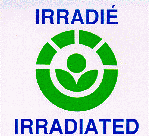Is the Canadian Food Inspection Agency (CFIA) doing enough to prevent border closures?
By Jade Marshall, University of Saskatchewan student
The beef industry is a volatile business, heavily reliant on exports, according to a 2014 source Canada exports 40% of its beef production. This makes the Canadian beef industry extremely susceptible to market crashes if borders close. Beef farmers who managed to survive the 2003 horror, when roughly 40 countries closed their borders to Canadian beef due to BSE, were finally hoping to see a profit when they experienced another unexpected US border closure in 2012. This time, the incident was caused by e. coli found on beef from XL Foods.
Beef producers, including my neighbors, family, and friends, have unfortunately experienced severe losses caused by these problems. Some have had to sell the family farm, rely on off-farm income or support programs to provide for their families, or simply saw profits diminished. This financial instability has added stress and an increased workload. Those who managed to continue farming will forever remain anxious and terrified about the next time all their hard work will be tarnished and their profit dissolved.
The losses caused by the XL packing plant incident were extremely significant, it was the largest meat recall in Canadian history and resulted in millions of kilograms of beef being recalled across more than 2000 products. This was after US meat inspectors closed the US border to Canadian beef after finding e. coli in ground beef from XL Foods. This mistake caused cattle markets to fall significantly due to the combination of, the plant that handled roughly 40% of Canadian processing being closed and the border to Canada’s main market being closed. According to Dennis Laycraft from the Canadian Cattlemen’s Association, the total direct impact of the incident was a loss of $27 million to the Canadian beef industry.
Even through events like these, the CFIA has maintained a very high standard of quality while remaining transparent to the public, this helps to instill confidence in Canadian consumers that our food is safe. The question now is whether the CFIA is doing enough for beef producers to help prevent the magnitude or the frequency of border closures? From talking to involved producers, the consensus I gathered was no.
The beef industry has the technology that could have prevented the 2012 border closure from happening. This technology, called irradiation, has been scientifically proven to significantly reduce or eliminate e. coli found in beef. Many American packing plants use irradiation, energy pasteurization of beef, as an additional method of controlling micro-organisms. However, it isn’t approved by the CFIA for Canadian beef.
 The CFIA has already approved irradiation for a variety of Canadian products including onions, potatoes, flour, spices, and seasonings. Clearly, the CFIA deems it safe if it is allowed to be used in other products, yet why not beef? Several studies find this technology to be safe when used on beef. Even Health Canada states that irradiated beef is safe to consume and that it significantly reduces e. coli and other micro-bacteria while only creating minimal (almost negligible) changes to the beef.
The CFIA has already approved irradiation for a variety of Canadian products including onions, potatoes, flour, spices, and seasonings. Clearly, the CFIA deems it safe if it is allowed to be used in other products, yet why not beef? Several studies find this technology to be safe when used on beef. Even Health Canada states that irradiated beef is safe to consume and that it significantly reduces e. coli and other micro-bacteria while only creating minimal (almost negligible) changes to the beef.
The beef industry has attempted to get CFIA approval on irradiation, however, the CFIA has halted acceptance thus far. I understand consumer’s fear, especially of the name, however, this technology has been proven effective, it’s safe, and is used on other Canadian products. Even Canada’s major beef export markets have accepted irradiation technology, so why doesn’t the Canadian market utilize it?
If we don’t implement helpful technologies, or create policies to prevent foreseeable problems or history from repeating itself, is the CFIA really supporting the producer? Have we really learned from our past, or are beef producers going to have to keep reliving this trauma in the future?

Jade Marshall
Jade Marshall, from Red Deer Country, Alberta, grew up helping with the family farm. The Marshall farm is a family beef operation with a mixture of purebred Charolais cattle, a commercial cow-calf herd, and a background feedlot. Currently, Jade is in her third year of an Agribusiness degree at the University of Saskatchewan, which she hoping to use back on the farm or at an agribusiness firm in central Alberta.

